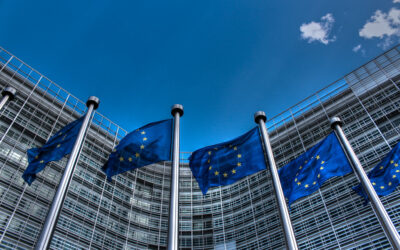Google has recently announced a new chatbot called “Bard”, which aims to compete with OpenAI’s ChatGPT in the artificial intelligence (AI) market. Chatbots are computer programs that are designed to mimic human conversation and can be used for customer service, sales, and marketing purposes. They are becoming increasingly popular as they provide users with direct answers to their questions. Read more to get familiar with Google Bard and understand the differences with OpenAI’s ChatGPT.
Bard, which is built on Google’s advanced natural language processing technology, is designed to generate human-like responses to questions. According to Google, the chatbot can understand the context and sentiment behind a customer’s request, and provide accurate and relevant answers. Sunder Pichai, Chief Executive Office of Google, argues that Bard collects data from the internet in a “rapid and qualitative high reaction”. Currently, the latter aspect is questionable in the case of ChatGPT. Practical usages learned that users need to be careful in regards to quotes, sources, and general information since this might not be accurate or representative.
Unlike ChatGPT, Bard gets released in a closed environment. Google solely allows “trusted testers” to demonstrate and test the new software. These trusted users are yet to be clarified by Google. Instead, ChatGPT released their AI to the public in an immediate manner, gaining enormous momentum in social media and attracting more than 1 million users within 5 days. Google mentions that Bard will be open to the public within a few weeks after in-depth testing in their aim towards high qualitative answers and information.
Moreover, Bard’s accessible computing power per question will get limited to a certain degree. In the case of ChatGPT, the flood of users causes the system to frequently be unavailable. Google argues that the change in computing power assists in allowing more simultaneous actions on the server. Furthermore, a possible explanation for the initial “alpha phase” is to analyse, correct, and analyse the information-gathering algorithms. In the challenge to create high-quality and safe answers, the chatbot also needs to prevent racism or sexism in the messages, as this would lead to a PR nightmare.
Google is well known for its untouchable position in the search engine market. In retrospect, ChatGPT has shown that other companies can successfully enter fields of technology by leaving Google (far) behind them. Instead of redirecting people to links and websites, as is the case with the ordinary search engine, ChatGPT goes further and formulates the answer. While this does not go flawlessly, OpenAI, the creator of ChatGPT, is constantly incorporating user data to establish a newer and improved version.
The developments by OpenAI resulted in a “code red” by Sunder Pinchai. Google cannot slack behind OpenAI in the usage of AI chatbots. Since the urgency is this big within Google, the company decided to share the news regarding chatbot Bard immediately instead of waiting for the developer conference in July. This conference is the usual occasion to share the big news and upcoming developments.
The cooperation between Microsoft and OpenAI is a motive for Google’s immediate action. Microsoft, the creator of the search engine Bing, has invested 10 billion dollars into the new ChatGPT and plans to incorporate ChatGPT into Bing. Google needs to take this seriously since the advertisement revenue due to the immense usage of the Google search engine is at stake.



